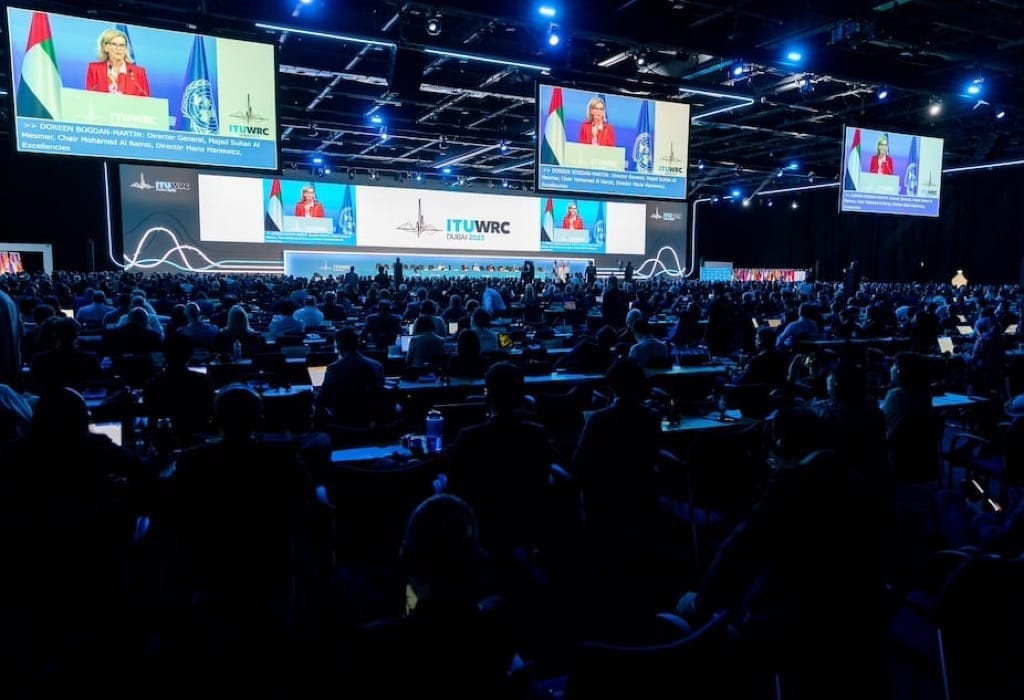Cable, 5G Operators Disagree on Spectrum Sharing Ahead of World Radio Conference
The FCC asked for input as it works to prepare the U.S.'s positions.
Jake Neenan

WASHINGTON, August 22, 2024 – Wireless carriers and the cable industry are at odds over how the United States should approach spectrum sharing at the next World Radiocommunication Conference.
That conference won’t happen until 2027, but the Federal Communications Commission is already taking input on the preliminary positions put forward by its WRC advisory committee last month.
As for studying the feasibility of deploying mobile networks in the 7/8 gigahertz band, currently occupied in the U.S. by the federal government, the advisory group generally supported the global agreement to do so in 2023. The band is also a focus of the Biden administration’s spectrum strategy, which calls for studying several government bands for potential repurposing.
The group offered two potential views the U.S. could take to WRC 2027: “alternative 1”, a general endorsement of such studies and “alternative 2”, which includes the same language plus support for dynamic spectrum sharing in the band when feasible to protect incumbents.
Wireless carriers like AT&T and T-Mobile tend to favor the exclusive licenses they use rather than sharing models that allow multiple users to coexist in a band without interference, and they asked the FCC’s international advocacy to reflect that.
“The U.S. commercial mobile wireless ecosystem has been built on the availability of licensed, exclusive use spectrum, and that option should be pursued where available,” T-Mobile wrote.
The carriers consistently cited a report they commissioned which found the country’s wireless providers need an additional 400 MHz of licensed mid-band spectrum by 2028 to keep up with increasing demand.
“As a nation, we need to identify mid-band spectrum for licensed, full-power commercial wireless service or risk undercutting U.S. leadership in wireless, foreclosing economic opportunities, and destabilizing U.S. national security interests,” Verizon wrote.
The FCC’s authority to auction off spectrum bands for commercial use lapsed in March 2023. Legislation aimed at reinstating it has stalled so far amid other policy differences – namely how or whether to allocate the proceeds of future auctions.
The cable industry, which uses some shared Citizens Broadband Radio Service spectrum to provide some fixed and mobile broadband, advocated for the advisory group’s second proposal. Companies sometimes provide that service via deals with the large wireless carriers.
Supporting dynamic spectrum sharing frameworks at the conference would “embolden American innovators as they compete in the global marketplace, signal the U.S. Government’s support, and give our [Inter-American Telecommunication Commission] neighbors a clear and accurate view of the state of U.S. consideration of the 7/8 GHz band,” wrote NCTA – The Internet & Television Association, the industry’s main lobbying group.
The agency said it would use the comments it received to coordinate with the State Department and the National Telecommunications and Information Administration ahead of WRC-27.









Member discussion